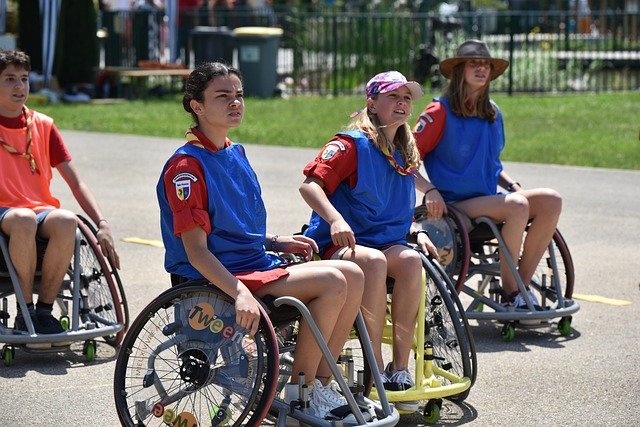For years, people with disabilities have struggled to find accurate and meaningful representation in mainstream media. While movies and TV shows often focus on inspirational or tragic narratives, they rarely offer a realistic look at the everyday lives, struggles, and triumphs of disabled individuals.
Documentaries, however, are changing that. They are giving disabled people the platform to share their real stories, in their own words. Unlike scripted films, documentaries capture raw emotions, real-life challenges, and authentic experiences, helping to break stereotypes and build a deeper understanding of disability.
In this article, we explore how documentaries are reshaping the conversation around disability, why they matter, and how they are creating real-world impact beyond entertainment.
The Power of Documentaries in Disability Representation
Documentaries do more than entertain—they educate, inspire, and challenge societal views.
Moving Beyond Stereotypes and Misconceptions
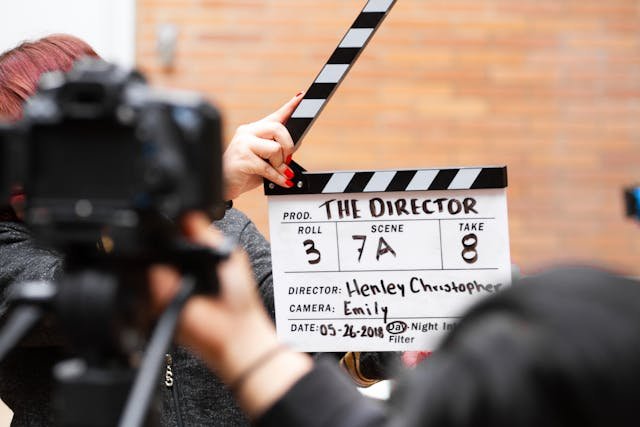
For decades, mainstream films have depicted disability in a one-dimensional way—either as something to be pitied or as an obstacle to be “overcome” through extraordinary determination. This kind of storytelling often leaves little room for real, complex narratives.
Documentaries break this pattern by showing disability as it truly is. They capture:
- The daily experiences of disabled people, from work and relationships to personal achievements.
- The systemic barriers faced in education, employment, and accessibility.
- The individuality and diversity within the disabled community—proving that disability is not a “one-size-fits-all” experience.
By presenting real, unscripted moments, documentaries help challenge outdated views and provide a more inclusive, accurate representation of disability.
Giving Disabled People the Platform to Tell Their Own Stories
In most films and TV shows, disabled characters are written, directed, and portrayed by non-disabled people. This means that their experiences are often filtered through an outsider’s perspective, which can lead to misrepresentation or exaggerated portrayals.
Documentaries, on the other hand, allow disabled individuals to control their own narratives. Whether through interviews, firsthand footage, or personal storytelling, these films give a voice to those who have long been unheard.
For example, in the Oscar-nominated documentary Crip Camp (2020), real-life disability rights activists share their struggles, victories, and personal insights, making the story more impactful and authentic than any scripted drama.
When disabled individuals are at the center of their own stories, audiences get a genuine understanding of their experiences, rather than a dramatized version created for entertainment.
Shaping Public Perception and Policy Change
Documentaries don’t just change opinions—they drive real-world impact. By exposing social injustices and highlighting barriers, these films can:
- Raise awareness about disability rights and accessibility issues.
- Influence policy changes, pushing governments and institutions to improve disability inclusion.
- Inspire social movements, encouraging people to advocate for inclusivity in workplaces, schools, and public spaces.
For instance, after the release of Crip Camp, disability rights discussions gained momentum worldwide, leading to increased awareness and activism in accessibility-related policies.
This proves that documentaries don’t just tell stories—they create meaningful change.
Must-Watch Documentaries That Highlight Disability
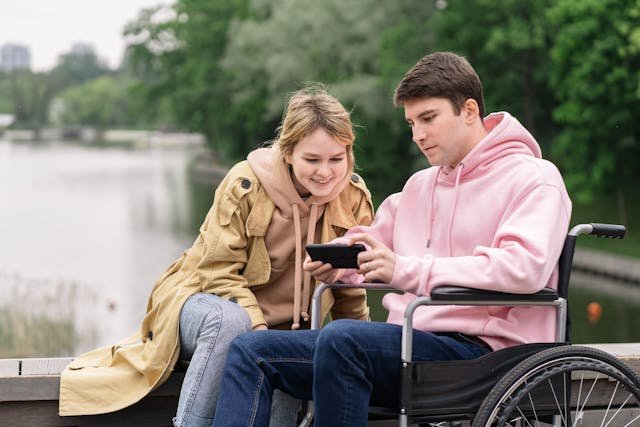
Several powerful documentaries have brought disability issues into the spotlight, sparking important conversations.
Crip Camp (2020) – The Fight for Disability Rights
Produced by Barack and Michelle Obama, Crip Camp tells the extraordinary story of a summer camp for disabled teenagers in the 1970s. The camp became a turning point in the disability rights movement, empowering attendees to fight for legal protections and social change.
Why It Matters:
- It educates viewers on the history of disability activism and the challenges disabled individuals faced before accessibility laws.
- It proves that change happens when marginalized voices are heard and amplified.
- It serves as inspiration for modern-day advocacy, showing how grassroots movements can lead to policy reforms.
Rising Phoenix (2020) – Redefining Disability in Sports
This documentary follows Paralympic athletes from around the world, showcasing their resilience, strength, and competitive spirit. It highlights how adaptive sports have changed perceptions of disability and created opportunities for disabled athletes.
Why It Matters:
- It breaks the stereotype that disability equals weakness, instead portraying disabled individuals as skilled and determined athletes.
- It raises awareness about accessibility in sports, pushing for more inclusion in athletic programs worldwide.
- It provides inspiration for young disabled individuals, proving that they, too, can pursue competitive sports.
Mind Over Matter (2017) – Overcoming Barriers in the Music Industry
This film follows Brandon Mendenhall, a musician with cerebral palsy, as he battles industry discrimination to achieve his dream of becoming a rock guitarist.
Why It Matters:
- It shows how disabled individuals face unique challenges in creative industries, highlighting the need for better accessibility in the arts.
- It promotes the idea that talent should never be judged by physical ability.
- It encourages businesses and organizations to provide more opportunities for disabled artists and performers.
How Businesses Can Support and Benefit from Disability Documentaries
Documentaries about disability aren’t just for educating the public—they also present strategic opportunities for businesses to become active supporters of inclusion and accessibility.
1. Investing in Disability-Focused Storytelling
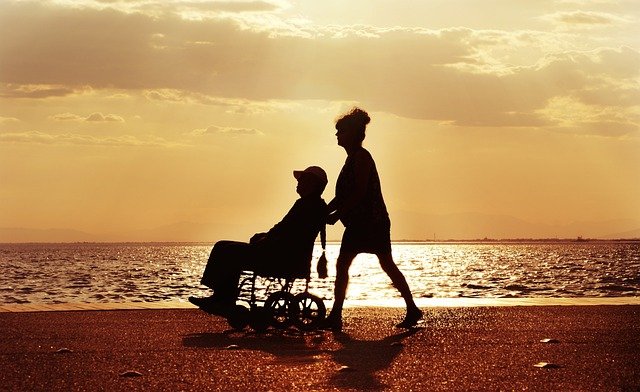
Many brands and companies invest in mainstream films and advertisements, but few prioritize disability-centered storytelling. Businesses can change this by:
- Sponsoring or funding disability documentaries that align with their corporate social responsibility (CSR) goals.
- Partnering with filmmakers to create branded content that showcases real-life disabled individuals using their products or services.
- Supporting documentary screenings and discussions in workplaces, schools, and public spaces to raise awareness.
Companies that actively invest in inclusive media demonstrate a genuine commitment to diversity, strengthening their brand reputation.
2. Leveraging Documentary Narratives in Marketing
Documentaries create powerful emotional connections with audiences, making them an excellent tool for brands looking to showcase their social impact and inclusivity efforts. Businesses can:
- Feature real documentary clips in promotional campaigns to highlight their support for disability inclusion.
- Create short-form documentary-style ads featuring disabled employees, athletes, or customers.
- Share real-life disability success stories to build brand credibility and engage a wider audience.
When brands align with authentic, disability-focused narratives, they not only connect with a socially conscious audience but also set themselves apart as leaders in inclusion.
3. Enhancing Accessibility Based on Documentary Insights
Many disability documentaries highlight accessibility challenges in public spaces, workplaces, and services. Businesses can use these insights to:
- Improve accessibility in their own workplaces, ensuring that disabled employees and customers have equal access.
- Develop more inclusive products, considering how their offerings impact disabled individuals.
- Collaborate with disability activists and prosthetic manufacturers to bring real-world solutions to the market.
By taking actionable steps based on documentary findings, companies not only support inclusion but also create a more welcoming and profitable business environment.
The Role of Technology and Digital Platforms in Expanding the Reach of Disability Documentaries

As the demand for authentic disability representation grows, technology and digital platforms are playing a crucial role in expanding the reach of disability documentaries. Traditional filmmaking and distribution methods often limit accessibility, but digital innovations are breaking barriers, allowing these important stories to be seen by larger, more diverse audiences.
1. Streaming Services Are Elevating Disability Narratives
Gone are the days when disability documentaries were confined to film festivals or niche TV channels. Thanks to Netflix, Amazon Prime, Disney+ Hotstar, and other streaming platforms, these films now have global visibility, reaching audiences that previously had little exposure to real disability stories.
How Businesses Can Leverage This Trend:
- Collaborate with streaming platforms to create original content focused on disability inclusion. Brands investing in socially relevant storytelling can co-produce films that highlight the intersection of disability, technology, and innovation.
- Promote accessible content options, ensuring that films have closed captions, audio descriptions, and sign language interpretations for disabled viewers.
- Use streaming analytics to understand audience engagement, learning how different demographics respond to disability narratives and using that data for better marketing strategies.
As streaming platforms continue to prioritize diversity and inclusion, businesses that invest in sponsoring or producing disability-focused documentaries can position themselves as leaders in social impact storytelling.
2. Social Media as a Tool for Amplification and Advocacy
Social media has transformed how documentaries gain traction and influence public discourse. Platforms like YouTube, Instagram, and TikTok allow short-form documentary clips, behind-the-scenes footage, and real-life testimonies to reach millions within minutes.
Actionable Business Strategies:
- Host virtual panel discussions with disability activists, prosthetic manufacturers, and documentary filmmakers to educate and engage online communities.
- Leverage influencer marketing, collaborating with disabled content creators who can provide firsthand perspectives on disability representation.
- Launch hashtag campaigns to spread awareness about disability documentaries, encouraging viewers to share their thoughts and advocate for accessibility.
By embracing digital advocacy, companies can turn documentary-driven conversations into actionable social impact campaigns, fostering deeper connections with disabled communities and allies.
3. Virtual Reality (VR) and Interactive Documentary Experiences
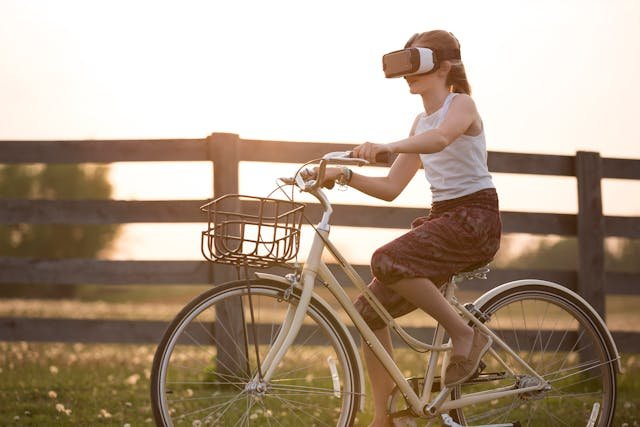
One of the most groundbreaking innovations in disability storytelling is the use of Virtual Reality (VR) and interactive experiences. Instead of simply watching a film about disability, viewers can now step into the shoes of a disabled individual, experiencing their world firsthand.
Business Opportunities in VR Accessibility:
- Develop VR-based training modules for businesses, allowing employees to experience challenges faced by disabled individuals in workplaces, public transport, and daily life.
- Partner with universities and schools to use interactive disability documentaries as educational tools, fostering empathy and awareness from a young age.
- Incorporate VR simulations in prosthetic and assistive tech research, enabling engineers and designers to create more user-friendly, intuitive solutions for disabled individuals.
By integrating VR and interactive elements, businesses can bridge the gap between storytelling and real-world action, making disability inclusion a deeply immersive experience.
How Documentaries Are Driving Disability-Inclusive Policies and Corporate Practices
Disability documentaries do more than educate audiences—they also push corporations and governments to adopt inclusive policies. Businesses that align their strategies with the lessons learned from these films can drive meaningful change while strengthening their brand reputation.
1. Workplace Accessibility and Inclusive Hiring
Many disability documentaries highlight employment challenges faced by disabled individuals, from biased hiring practices to lack of workplace accommodations. Companies that take proactive steps to improve accessibility can transform these narratives into real-world opportunities.
Business Actions to Consider:
- Introduce disability-inclusive hiring programs, ensuring disabled individuals have equal access to job opportunities.
- Provide workplace accommodations such as assistive technology, flexible work hours, and adaptive office spaces.
- Celebrate disability success stories internally, featuring employees who have overcome barriers and contributed meaningfully to the organization.
By making workplaces more disability-friendly, businesses can foster inclusivity while improving employee satisfaction and brand credibility.
2. Enhancing Accessibility in Public Spaces and Services
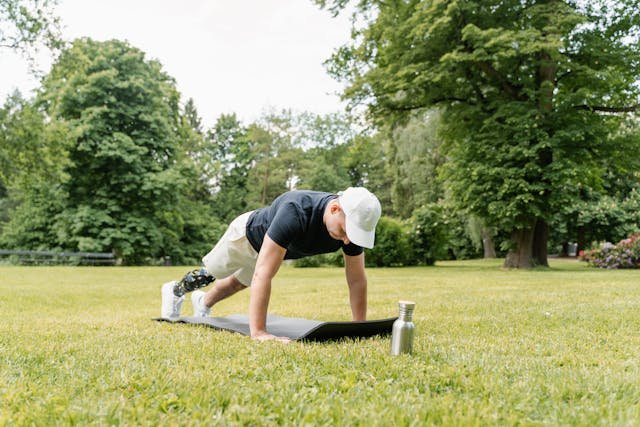
Films like Crip Camp and Rising Phoenix have shed light on the inaccessibility of public infrastructure. Businesses that incorporate accessibility into their services can make a real impact on how disabled individuals navigate daily life.
How Businesses Can Lead the Way:
- Ensure retail stores, hotels, and corporate offices are wheelchair-accessible, with ramps, elevators, and automatic doors.
- Adopt universal design principles, making products and services usable for everyone, regardless of physical ability.
- Work with urban planners and policymakers to advocate for more inclusive public transportation systems.
When businesses go beyond compliance and actively create accessible environments, they gain trust and loyalty from the disabled community while setting new industry standards.
3. Driving Innovation in Assistive Technology
Disability documentaries often showcase groundbreaking assistive technologies, from bionic prosthetics to AI-driven mobility aids. Companies that invest in these advancements can help shape the future of accessibility while tapping into a growing market.
Opportunities for Tech and Healthcare Companies:
- Collaborate with prosthetic manufacturers to develop cutting-edge, user-friendly prosthetic limbs and assistive devices.
- Use AI and machine learning to enhance speech recognition software, smart wheelchairs, and navigation aids for visually impaired individuals.
- Create funding programs for disability tech startups, encouraging innovation in adaptive solutions.
By staying ahead of technological trends, businesses can drive profitability while improving the quality of life for disabled individuals.
Final Thoughts: The Future of Disability Advocacy Through Documentaries
The rise of disability documentaries is not just a cultural shift—it’s a powerful movement toward greater inclusivity and representation. These films are:
- Changing public perceptions of disability
- Influencing corporate policies and accessibility standards
- Driving innovation in prosthetics and assistive technology
- Inspiring a new generation of disabled activists, athletes, and leaders
At Robobionics, we believe that every story has the power to drive change. By supporting documentary-driven advocacy, investing in disability inclusion, and leveraging technology for accessibility, businesses can become key players in shaping a more inclusive world.
The future of disability representation is not just about awareness—it’s about action. And with the right strategies, businesses, media platforms, and technology leaders can ensure that disability stories are not only told but also acted upon—creating a world where inclusion is no longer an exception, but the standard.



